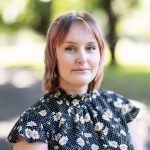Navigators guide First Nations people through the NDIS maze

Navigators Eileen, Ricache and Shana. Picture: SUPPLIED
23 November 2022 at 5:58 pm
Using a self-determination approach, a South Australian program is guiding Aboriginal people on how to get what they need from the NDIS.
An Aboriginal-led organisation is providing culturally safe support to access the NDIS.
The program, Be With Me, gives families and children with disability access to the support they need to thrive.
Aboriginal Family Support Services (AFSS), the peak body for Aboriginal child welfare in South Australia, founded the program. AFSS is an Aboriginal community-controlled organisation, founded by a group of elders in the 1970s who wanted Aboriginal voice and input in the protection of Aboriginal children.
It offers out-of-home care for Aboriginal children, as well as providing reunification support, assistance in domestic violence situations, emergency relief and NDIS and disability services.
The Be With Me program is part of the suite of disability supports on offer through AFSS. Be With Me sees First Nations staff known as ‘navigators’ help guide Aboriginal people with disability through the maze of the NDIS.
“We realised [they needed] just a little bit of extra support to navigate the services because the accessibility of the NDIS is really tricky. The things that people need to do to get access to the NDIS, the hoops they have to jump through and the paperwork that has to be there is really tricky,” explained Olivia King, NDIS manager at AFSS.
Added to this are cultural barriers, she added; for example, many Aboriginal people don’t have trust in government systems.
Navigators are there to support people through the process and add a layer of cultural safety and trust.
They work with families and people with disability to help get the appropriate assessments to access the NDIS. Navigators can also liaise with government agencies and help with follow up work, find service providers, and attend medical appointments alongside families to help them advocate.
“We’re sort of upskilling the families, but also providing them with that little bit of safety and security around people that they don’t really want to be engaging with,” King said.
The Be With Me program also provides Aboriginality and disability training to non-Aborginal organisations. This is part of AFSS’ work to ensure that services provided to First Nations families are culturally safe.
The Be With Me navigators are currently supporting around 70 active cases across the state.
“I think people really appreciate having someone to walk alongside them and being with them. It’s about being with the person while they’re trying to find their way through that tricky part,” King said.
Shana-May Karpany, NDIS navigator at AFSS, explained that navigators go the extra mile to help families, meeting them in a place where they are most comfortable, and tailoring the service to what the families need most.
“As long as it’s around their NDIS… we can provide the supports they need,” she said.
In some cases, once the relationship has been established the navigators are able to support in other areas too, like medical, stable housing, and education.
“It’s really about getting to know them and having the time to sit and find out their story and what they’re going to be the most comfortable with,” Karpany said.
The Be With Me program is a finalist in the upcoming HESTA Excellence Awards, and King said the prize money would help AFSS to immediately give more clients access to the diagnostics and assessments they need to get on the NDIS.
The program was originally funded to run for just 12 months, but has since been extended twice to run for a total of three years.
Depending on government funding, King said she sees an ongoing role for the navigators, as community need continues.
And AFSS believes the need is similar in other states too, and that NGOs around Australia could learn from AFSS’ experience about how to run a similar program elsewhere.
“I think Aboriginal organisations being supported to build a system that’s going to work really well for the people that they’re going to be working with is the most important thing, and then being the lead of what is going to work in the communities that they serve is really important. That’s the key thing… self-determination. It’s not self-determination if someone else determines it for you,” King said.








